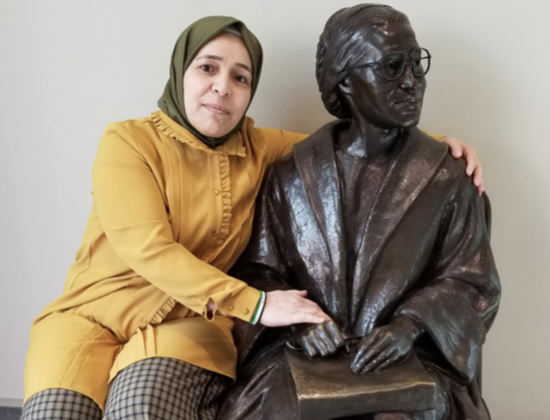By Jacqui Shipe, CEO, Global Ties Alabama
Martin Luther King, Jr.’s 1963 “Letter from the Birmingham Jail” preceded the 1965 founding of Global Ties Alabama (formerly the International Services Council of Alabama) but several excerpts inspire our core values and programming.
“Injustice anywhere is a threat to justice everywhere;
Interrelatedness of all communities;
We are caught in an inescapable network of mutuality, tied in a single garment of destiny; Whatever affects one directly affects all indirectly.”
King’s nonviolent strategies to end racial discrimination and injustices illustrated his extraordinary vision, courage and leadership. He was a social activist whose protests—sit-ins, boycotts, and marches—are celebrated national and globally. Global Ties Alabama (GTA) recognizes that the movement for social and economic justice continues today and is a significant marker for democracy and civic engagement – locally, nationally, and globally.
That is why we are honored to provide the emerging global leaders of the International Visitor Leadership Program (IVLP) and other exchange participants access to the sites of some of the most significant historical events in the civil rights movement, and broaden their understanding of the movement and all the civil rights leaders involved.
Many of GTA’s international visitors, who celebrate King’s legacy after learning of his life and his “I Have A Dream” speech, give personal testimonies on how King and the American civil rights movement served as the foundation for social movements in their respective countries. We regularly facilitate visits to Edmund Pettus Bridge, the historic Jackson Museum, the Dexter Avenue King Memorial (Montgomery) and 16th Street (Birmingham) Baptist Churches where visitors meet with the “foot soldiers” of the civil rights movement—young people who were on the ground and engaged in various forms of peaceful protests to advance the course of civil rights.
In March 2020, we welcomed Amina Khoulani, a civil and human rights activist, during the International Women of Courage IVLP. She shared her personal story of detention and torture and dedication to helping the families of forcibly disappeared Syrians under the Bashir Al-Assad regime with our local communities at the Birmingham Civil Rights Institute and Samford University’s Cumberland Law School. As we took her to various civil rights sites and museums, including the Rosa Parks Museum in Montgomery (below), she conveyed the influence of U.S. civil rights leaders like King and Rosa Parks on her own journey to become a woman of courage and an advocate for human rights, democracy, and peace in Syria.

Of course, the pandemic has prevented in-person visits to historic sites, but we’ve taken advantage of virtual programming to introduce IVLP participants to the modern-day civil rights foot soldiers of Alabama’s Equal Justice Initiative (EJI). We discuss EJI Founder Bryan Stevenson’s book and movie, Just Mercy, and recognition in 2020 as one of four international defenders awarded the “Alternative Nobel” for his work against mass incarceration. Conversations with EJI staff provides participants with insight and details into how EJI leads systemic changes in the courts system for persons marginalized in society and has changed the narrative on slavery through its Legacy Museum and Peace Memorial.
On December 8, 2020, GTA’s Board of Directors unanimously adopted The Birmingham Pledge to collectively and publically recognize the dignity and worth of every individual by making a personal, daily commitment to eliminate racism and prejudice from our own lives and to treat all people with respect. These principles align with GTA’s foundational core values—respect, friendship, collaboration, lifelong learning, multicultural diversity, and globalization, and with the shared missions of the Global Ties Network. By openly discussing U.S. civil rights and civic engagement with international visitors, we build global relationships, partnerships, and trust through international exchange, and live out the legacies of King and other civil rights leaders.
